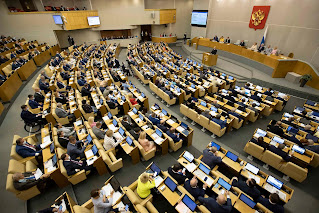Russia's war against Ukraine has had a catastrophic effect on civilian life since its full-scale invasion in 2022, killing thousands of people, injuring many thousands more, and demolishing infrastructure and property owned by civilians. Numerous breaches of international humanitarian law were carried out by Russian forces, including the disproportionate and indiscriminate bombing and shelling of civilian areas, which targeted residential areas as well as medical and educational facilities. Investigating some of these attacks as war crimes is warranted. Russian or Russian-affiliated forces appear to have perpetrated war crimes in the territories they seized, including summary executions, torture, sexual assault, and forcible thefts and vanishments of cultural assets.
Many barriers and horrifying experiences awaited those who tried to escape conflict zones; in certain instances, Russian soldiers forcefully relocated a sizable number of Ukrainians to Russia or areas of Ukraine under Russian occupation, subjecting them to harsh security checks. The persistent, nationwide attacks by Russian forces on Ukraine's vital infrastructure, including its energy supply, seemed to be directed at scaring the populace and destroying their means of subsistence—a war crime.
"Loss After Loss After Loss": Ukraine's Dam Destroying
The Nova Kakhovka dam in southern Ukraine collapsed early on June 6, flooding numerous towns and villages on both banks of the Dnipro River. Over the next few days, Tanya, sixty-one, lost everything.
Tanya resides in Oleshky, a town on the left bank of the Dnipro that has been under Russian occupation since April 2022, on Nizhnyaya Street. Ninety percent of Oleshky was under water, with many locations submerged completely. Tanya is one of the sixteen individuals I've spoken with over the phone in recent days—residents of Oleshky and the surrounding districts, as well as volunteers from the right bank—who have been attempting to assist.
They reported that by late June 6th afternoon, Russian occupying forces had fully sealed off the town's entrance and exit, imprisoning its residents. Those who attempted to escape in cars were turned back by checkpoint officials, who would say things like, "Haven't you been waiting it out hoping for Ukraine to and continue to wait. Additionally, Russian soldiers barred volunteers and other aid seekers from entering the town. "We told them we were bringing food and water for the people and that we were unarmed," a volunteer who attempted to enter Oleshky on June 8 told me. We were instructed to turn around, drive, and not look back by the Russian military. For good measure, they proceeded to fire their firearms into the air.Volunteers and locals have informed me time and time again that Russian authorities failed to provide a warning in the hours and days immediately following the dam disaster.
In the upcoming days and weeks, the demand for humanitarian aid will only grow more urgent. Those who serve older adults and individuals with disabilities at home, as well as those who are not, will be most impacted.
Russia: International Criminal Court Is the Target of Law
Human Rights Watch declared today that Russia's adoption on April 28, 2023, of a law criminalizing help to foreign and international entities is an insult to victims of heinous crimes.
The rule forbids collaboration with foreign courts and international organizations "to which Russia is not a party," including the International Criminal Court (ICC) and any ad hoc international tribunals that might be set up to bring charges against Russian politicians and military personnel.
Vladimir Putin, the president of Russia, and Maria Lvova-Belova, his commissioner for children's rights, both had arrest warrants issued by ICC judges on March 17. The judges determined that there were good reasons to suspect that Lvova-Belova and Putin were criminally responsible for the purportedly illegal removal and transfer of Ukrainian children from occupied regions of Ukraine to Russia.
The Committee of Ministers of the Council of Europe, which oversees the implementation of European Court rulings, expressed dismay in March 2023 at the Russian government's unwillingness to follow its rulings and underlined the court's unwavering duty to provide all applicants with just satisfaction.
International Justice Response to Ukraine
Vladimir Putin, the president of Russia, and Maria Lvova-Belova, the commissioner for children's rights in his office, both have arrest warrants issued by judges of the International Criminal Court (ICC) on March 17, 2023. Because of the alleged illegal deportation and transfer of Ukrainian children from occupied parts of Ukraine to Russia, the judges found reasonable grounds to infer that Putin and Lvova-Belova are criminally liable.
When there is strong political will, governments and international organizations have demonstrated their willingness to uphold the rights of victims by making extraordinary efforts to advance justice for crimes committed following Russia's full-scale invasion of Ukraine. A Q&A document regarding the international justice response to the Russia-Ukraine war was released by Human Rights Watch.
The prompt worldwide reaction to the crimes in Ukraine also highlights the disparities and unfair treatment of victims of significant crimes abroad when it comes to access to justice. Additionally, when justice is administered, its validity is called into question. Human Rights Watch stated that all states had to make an effort to fortify the international system of accountability and combat the use of double standards to grave international crimes.


Comments
Post a Comment